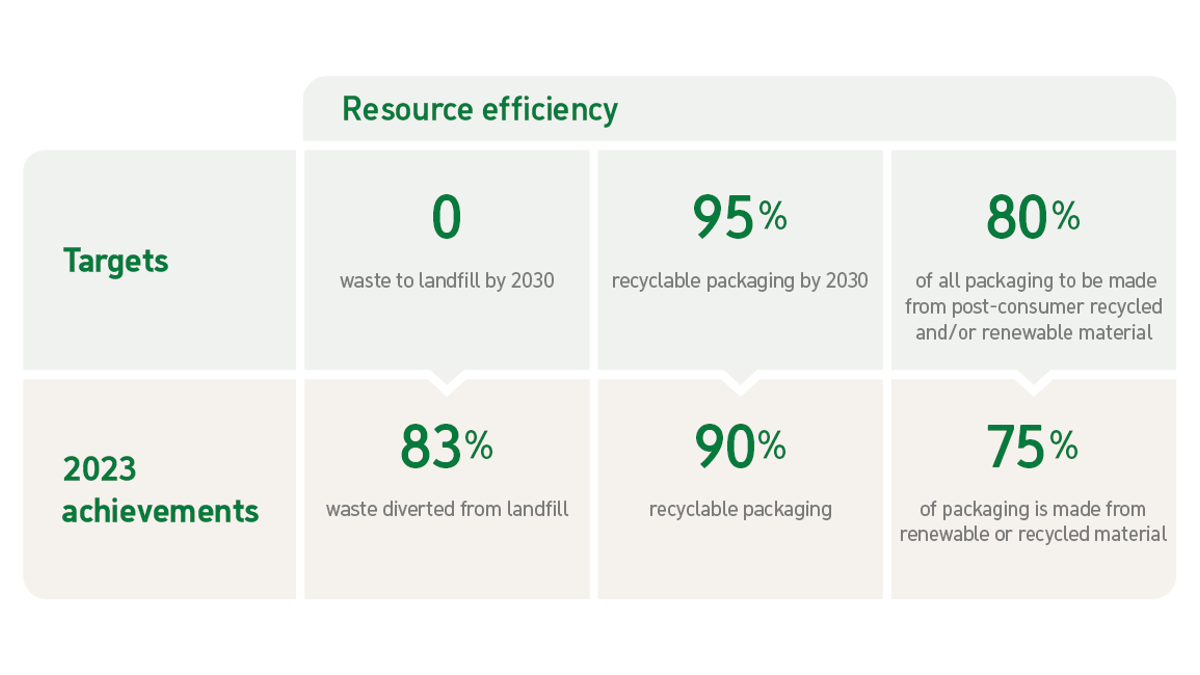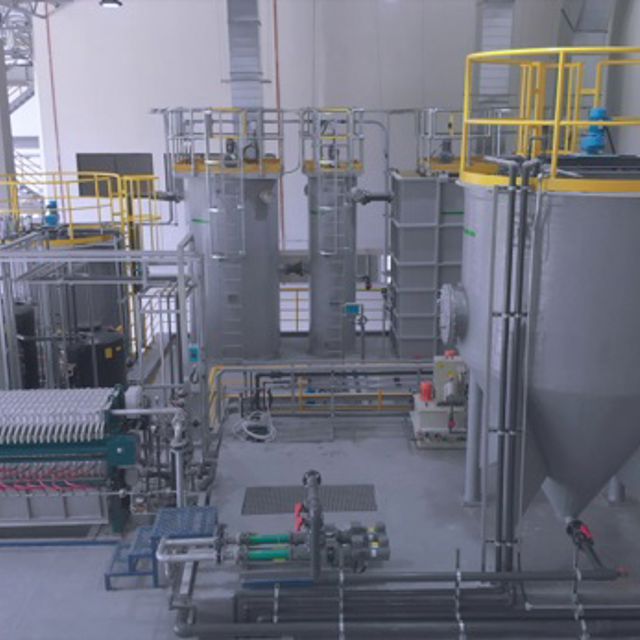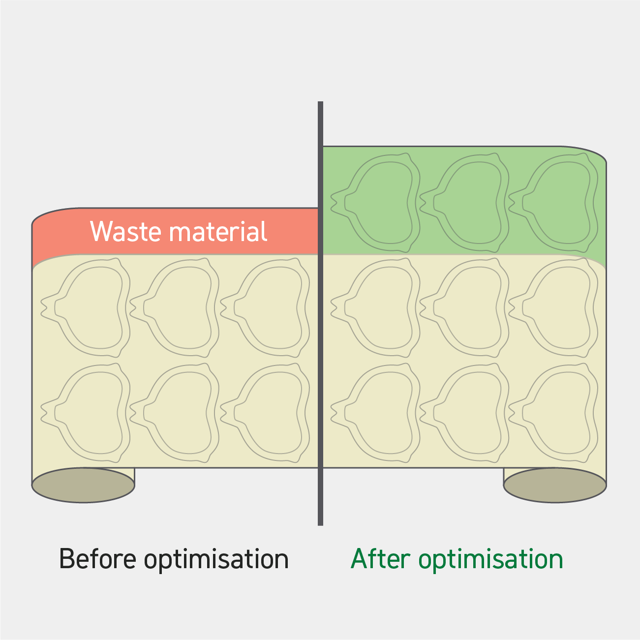Ressourceeffektivitet og cirkularitet
For at afkoble øget materialeforbrug fra vækst begynder vi med at optimere råvareforbruget og minimere produktionsspild. Vi undersøger alle faser af vores produkts livscyklus for at finde muligheder for at anvende cirkularitetsprincipperne: genbrug af materialer, forlængelse af produkters levetid, letvægt og søgning efter vedvarende alternativer til fossilbaserede materialer.
Vi transformerer vores forretning for at afkoble den fra ressourcebegrænsninger

-
Our position statement on resource efficiency and circularity
Mölnlycke's ambition to decouple material use from its growth goes beyond recycling. It all starts with limiting the need to recycle. Therefore, we focus on zero waste, working in accordance with the ‘right first time’ principle and repurposing and reclaiming materials.
We’re on a journey to become a zero waste company, which involves focusing on both waste and water. We have an ambitious target of zero waste to landfill by 2030 as well as reusing water at all our most water-intensive sites by 2030 and we implement closed water loop systems in our production environments to that end.
Our waste reduction management programme to achieve the targets is based on site-specific activities designed to avoid waste being created in the first place and then minimising waste to landfill by correct segregation and disposing of remaining waste. We also identify new outlets for materials that would otherwise have been disposed of. Our actions make an important contribution to the UN Sustainable Development Goal on Sustainable Consumption and Production (SDG 12). To find out more, please see our integrated Annual and Sustainability Report 2023.
Our medical solutions often contain plastic or are delivered in diverse plastic packaging, with unique intrinsic performance properties which extend the lifespan of our solutions and protect them from external factors such as damage during transport and handling, or deterioration caused by contamination. This reduces the need for additional raw materials and resources in our products and contributes to minimising our customers’ waste.
As part of our resource efficiency journey, we have an ambition to provide >95% recyclable packaging by 2030. Governments around the world are adopting legislation targeted at tackling, for example, plastic waste. By embracing the power of upstream innovation to achieve two key circular economy innovation strategies — elimination and material circulation — we stay ahead of the curve. We continuously work together with customers, suppliers, recyclers, universities, and other partners to develop innovative and circular packaging solutions that have lower holistic environmental footprints and enable our customers to be more sustainable and deliver on their sustainability ambitions. These include a growing share of lighter, recyclable, recycled, bio-based and biodegradable solutions while guaranteeing best clinical outcomes.
We consider competition with the food chain when evaluating the use of bio-based renewable raw materials and preferentially select ISCC certified biobased materials, guaranteeing a transparent traceability along our supply chains and meeting the environmental and social standards.
In addition, we take a proactive approach to identify, manage and remove hazardous substances in all our products and processes to ensure safe use, ahead of legislation, future-proofing our products against changes in regulations.
We substantiate our research and efforts into alternative feedstocks and circularity of our products or packaging by continually updating our product Life Cycle Analyses.
We further increase the existing activities aimed at preventing littering, including educational projects for our customers and local communities in the countries in which we operate.
Vigtige løftestænger for ansvarligt forbrug og produktion
-
Ommåling af materialer for at minimere slutbrugernes affald
-
Design af enheder med længere levetid
-
Introduktion af genanvendte og fornybare råmaterialer, der er certificeret af ISCC eller FSC

Vand: fremme af bedste praksis
Vand spiller en afgørende rolle i forskellige Mölnlycke-aktiviteter, herunder råvareproduktion, produktfremstilling (såsom skumproduktion), rengøring, køling og sanitet. Især handskeproduktion er en vandintensiv proces. Vores Kulim Hi-Tech Park-handskeproduktionsanlæg i Malaysia er LEED-certificeret og modtog den højest mulige score i kategorien vandeffektivitet.

Affaldsreduktion gennem produktionsinnovation
Med den forbedrede bredskæringsproces reducerede fabrikken i Maine mængden af affald, der blev sendt til lossepladsen, med 30 tons om måneden. Optimeringen øgede også antallet af bandager produceret fra en rulle med 50 %.
Hjælper kunder med at reducere spild
Undersøgelser viser, at skift fra enkeltpakkede medicinske forsyninger til vores tilpassede Mölnlycke® ProcedurePak-bakker kan reducere emballageaffald med op til 90 %, samtidig med at der spares værdifuld tid i forberedelsen.